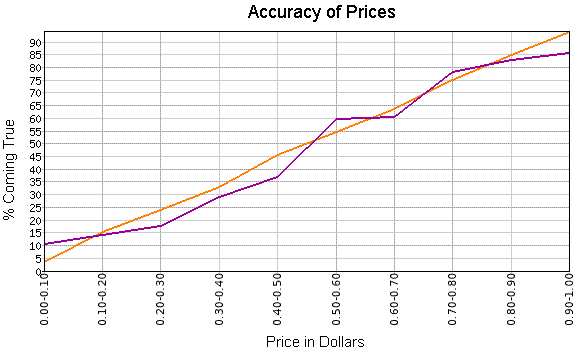Article 6: Forget Nostradamus, how about Google-damus?
 I was reading a story in Wired the other day (and now I can't seem to find it) but the gist of it went something like this: If you look at what people are searching for on the internet, much of the information you provide indicates what your intent is. If you search for home prices you are probably looking to buy or sell a house. If you search for movie times you are most likely going to the movies soon. The article stated that if you could aggregate all that info from across the internet you could identify trends, desires, needs, and wants on a massive, macro scale.
I was reading a story in Wired the other day (and now I can't seem to find it) but the gist of it went something like this: If you look at what people are searching for on the internet, much of the information you provide indicates what your intent is. If you search for home prices you are probably looking to buy or sell a house. If you search for movie times you are most likely going to the movies soon. The article stated that if you could aggregate all that info from across the internet you could identify trends, desires, needs, and wants on a massive, macro scale.Of course being able to predict future trends would be a boon to marketers. You could use the information to react to your customers before they even knew what they wanted. Say, as a clothes designer, you saw an increase in the number of searches for distressed, logo t-shirts. You could infer information from that and offer a line of clothing that fit in with that style before there is mass demand. At least theoretically that's how it's supposed to work I think!
Google ran an internal experiment to see if this
 mass psyche could be correct about market information. From their results (shown to the right) the "crowd" was fairly accurate at predicting the true market price of whatever they were measuring. This explanation of the experiment reveals that the more people involved in the experiment, the more accurate the results are expected to be. Enlarge this to a global scale and you can see that leveraging the planet's collective psyche could yield some interesting results.
mass psyche could be correct about market information. From their results (shown to the right) the "crowd" was fairly accurate at predicting the true market price of whatever they were measuring. This explanation of the experiment reveals that the more people involved in the experiment, the more accurate the results are expected to be. Enlarge this to a global scale and you can see that leveraging the planet's collective psyche could yield some interesting results.Another experiment at MIT logged activity of staff and professors for an extended period of time using their schedules and cell phones. The resulting model could accurately predict the future actions of any of the users within an accuracy of 85%.
So what does it all mean? And how does it pertain to marketing, advertising, and insights? Companies have already released predictive analysis software to help data mine and databases and predict consumer behavior. If the algorithms work, I think the added value is readily apparent. Being able to know what your consumers want before they want it is surely a dark art (in the world of Harry Potter) but would be priceless!
It remains to be seen if this cutting edge technology actually pans out, but if it does then marketers (and many scary, government bodies no doubt!) will be very interested in it. Identifying trends in any macro system is tricky but with a ubiquitous system like google, with billions of people jacked in, logic tells us the sheer amount of data being scoured should reveal some trends. Next time I decide to visit Starbucks will my skim-milk Mocha already be waiting for me?

0 Comments:
Post a Comment
<< Home